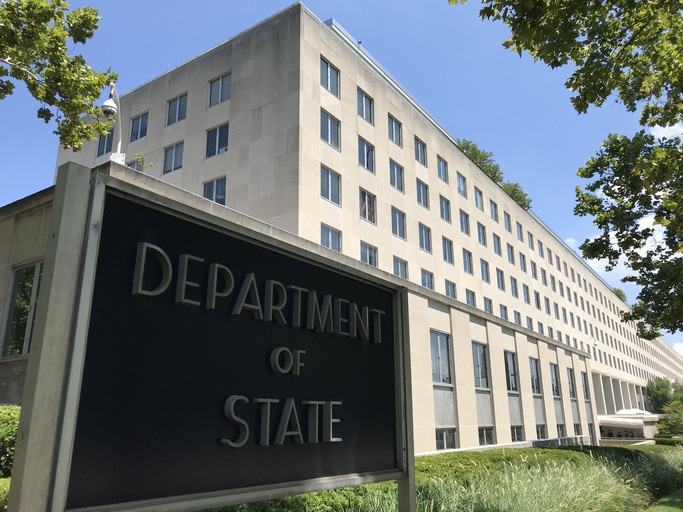On December 5, Siri Nelson, Executive Director of the National Whistleblower Center (NWC), joined eight representatives from around the world to discuss whistleblowing in the United States and abroad.
The event took place at the Washington Hilton Hotel as part of the U.S. State Department’s International Visitor Leadership Program (IVLP). Through this professional exchange initiative, participants traveled from their home countries of Bangladesh, Colombia, Iraq, Madagascar, Malaysia, Mexico, Serbia, and Zimbabwe to attend lectures and events related to American business practices and governmental affairs.
Titled “Anticorruption Champions Initiative: A Multi-Regional Project,” Nelson’s presentation covered media whistleblowing, anti-retaliation, the power of financial incentives, and other pro-whistleblower agenda items.
The international delegates hailed from a handful of professional fields, including banking, investigative media, finance, and anti-corruption.
Nelson first told the story of how she got her start in whistleblowing, which began with a breakthrough realization in privacy law.
“I realized that in digital privacy, the people who know best about violations are the ones who work inside of the companies and are responsible for handling personal data,” Nelson said.
Nelson, an esteemed graduate of the Northeastern University School of Law, took this idea and began her career in whistleblower protection law, starting off at Kohn, Kohn, and Colapinto LLP. Ever since, Nelson has supported these insiders with valuable information and worked with agencies like the U.S. Securities and Exchange Committee to create strong laws that protect vulnerable informants.
Nelson invited IVLP participants to share their own whistleblower accounts and stories from their home countries. Many admitted that their country either lacked laws, or had one that was poorly enforced, with whistleblowers at risk of arrest following their disclosures. One participant shared that she was sent to jail herself for authoring an article as part of her job as an investigative reporter.
Laws like the Foreign Corrupt Practices Act (FCPA), Nelson described, act as avenues in which international whistleblowers can be supported under U.S. laws even if their country does not have their own program. Since 2011, over 5,000 whistleblowers from more than 130 countries have recovered over $100 million.
Contemporaneously, the U.S. government brought in over $20 billion in fines, penalties, and sanctions thanks to FCPA enforcements and recoveries. These funds are used to pay whistleblowers, run whistleblower offices, reimburse harmed investors, and fund government programs.
“Governments around the world can make money through fraud enforcement,” Nelson said.
The National Whistleblower Center’s ‘best practices’ for whistleblowing, which Nelson outlined, include anonymity, confidentiality, anti-retaliation, and financial rewards for informants.
